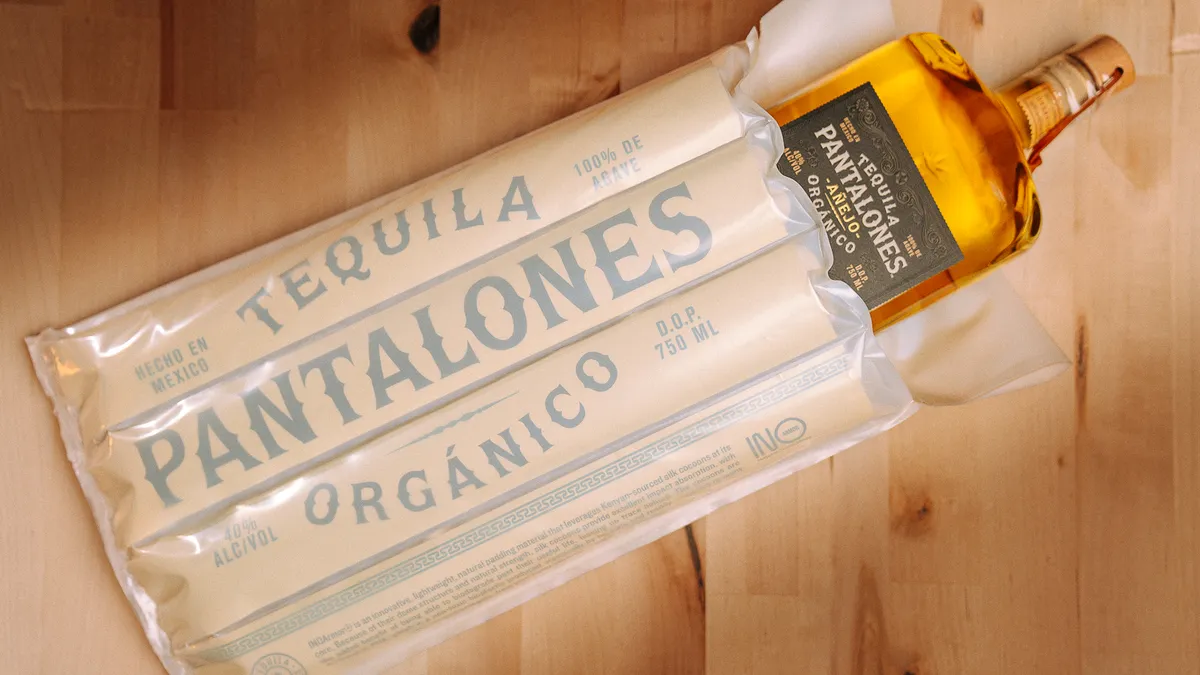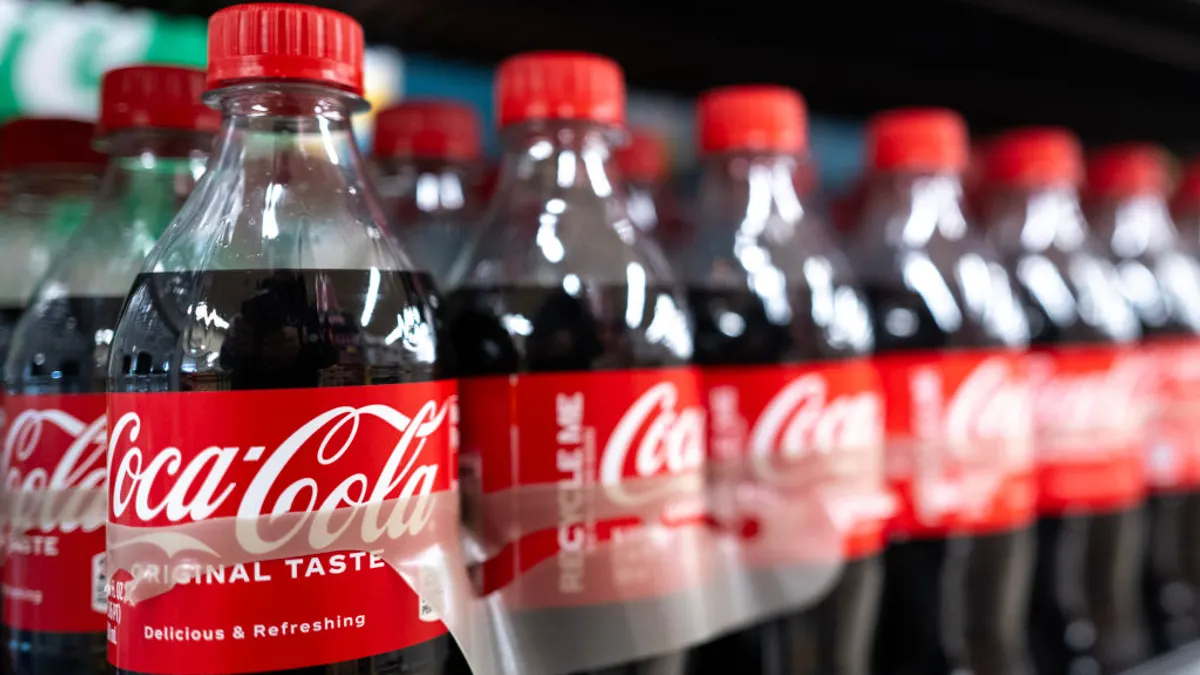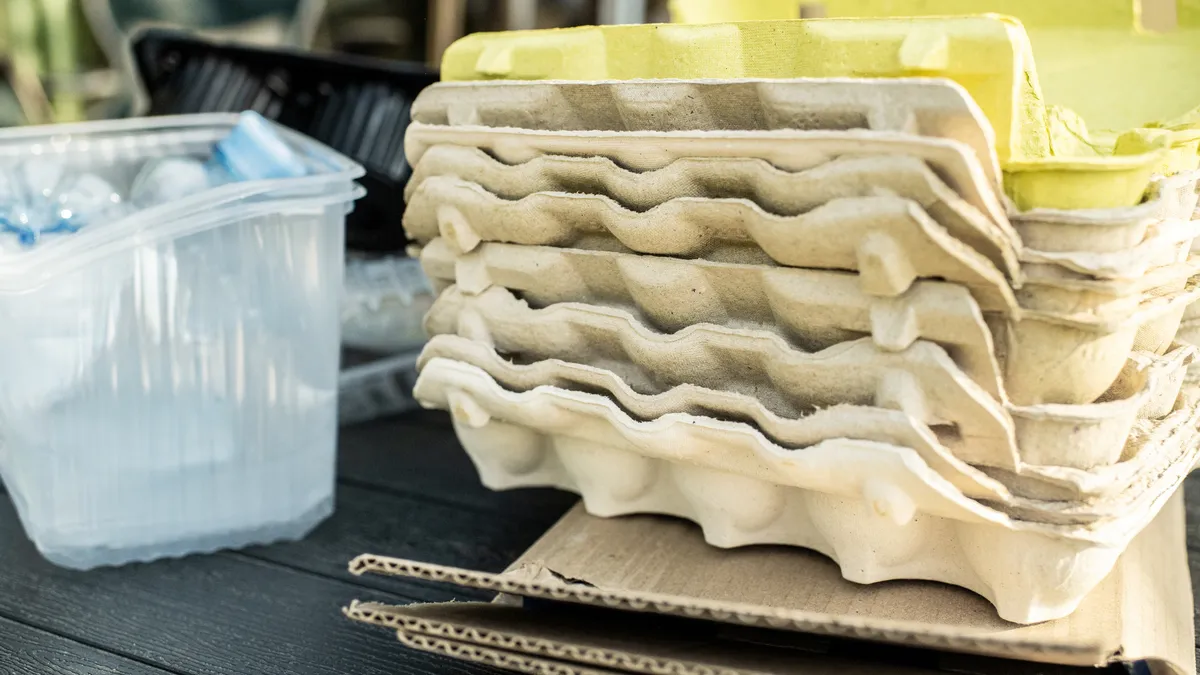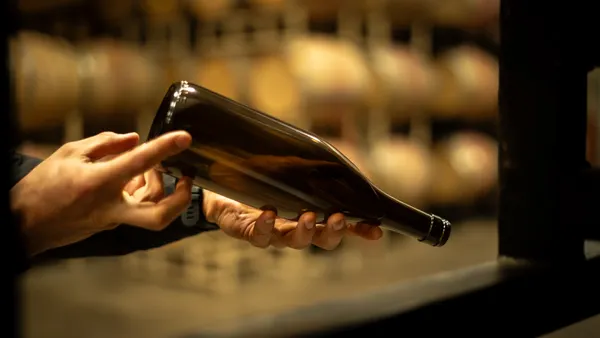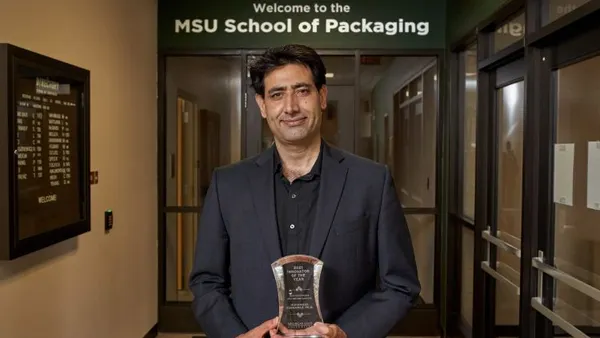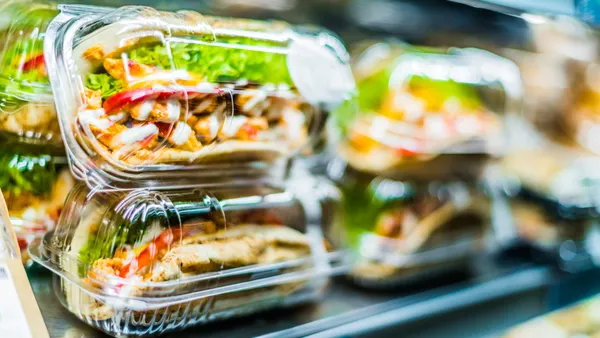Dive Brief:
- Pantalones Tequila is the first customer to go to market with a packaging innovation from Ino, a startup that’s making protective packaging from silkworm cocoons.
- InoArmor, the branded name for the silk product, serves as a filler material that is encased in a bag made from the biodegradable polymer PHA. The packaging is home compostable, according to Ino, which says the patented technology serves as a more sustainable alternative to conventional plastic protective packaging.
- Ino’s testing showed that its silk-filled bags “performed far better and have the extra added benefit of being resistant to punctures” than air-filled plastic packaging, which makes it ideal for encasing fragile products, said Charlie Maddock, co-founder and CEO at Ino.
Dive Insight:
InoArmor initially came about following a traumatic head injury Maddock sustained after being hit by a car in New York City. He became friends with his neurosurgeon, Howard Riina, and the two started a nonprofit focused on helping people who have experienced traumatic brain and spinal cord injuries. They aimed to find a replacement for the expanded polystyrene foam used in bike helmets. Ino formed from that work.
They worked with Fritz Vollrath, a professor at the University of Oxford, whose research includes the use of silk in medical products due to the natural material’s strength and other properties. The team developed a concept for using silk as a cushioning element in bike helmets. Testing on the bike helmet made with InoArmor “silk pillows” scored higher on performance metrics than competing helmets made from EPS, Maddock said.
That prompted the partners to “go to companies with fragile items, be them bottles or other delicate things, and try to create a solution,” he said. “We saw the packaging world as a cohort of people who would use a lot of this product and who ideally would start to be interested in a better solution, a natural solution.”
Ino performed extensive testing on the silk-filled bag for Pantalones, including drop tests onto concrete from a height of about nine feet. Employees have joked that “no one should be afraid to drop their Pantalones with InoArmor,” Maddock said.
The silk pillows inside the packaging are designed differently than those used in the helmets or other products. For instance, the silk density varies, similar to how EPS density differs across products. But all the silkworm cocoons come from silk farms with whom INO contracts. Thus far, Ino has worked with five farms spanning North America, Asia, South America and Africa, Maddock said, noting that Ino’s current plan does not involve owning its own silk farm.
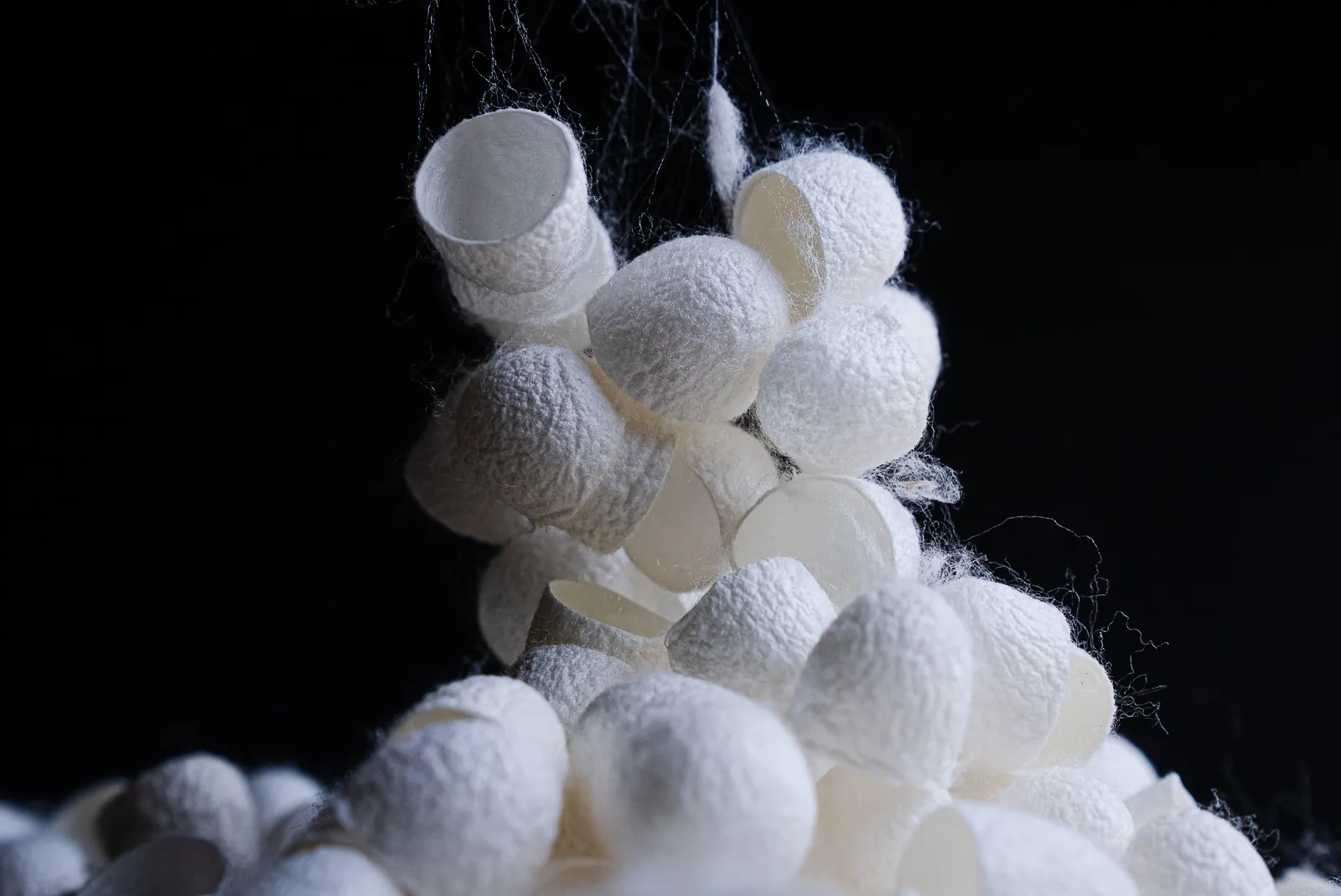
“All of the cocoons are slightly different, so we had to develop kind of an in-house QC process,” he said. “We can receive just a minimal amount of silk from a farm and put it through some impact testing to see how well it could potentially act.”
Upon receiving the silk supply, Ino employees sort and cut the cocoons, altering the shape to be a fit for each application. But nothing is added to the silk.
Ino sources its PHA from a separate supplier, and that product must protect against water. Silk absorbs water it is exposed to and then becomes less effective at protecting against impacts, Maddock said.
Another challenge is that “we're dealing with a natural product that no one had ever used before,” he said. So the Ino team had to try to prove to potential customers that people care about more effective, sustainable protective packaging — and that they’d use it.
Ino formed in 2019, and the pandemic slowed down progress with getting products to market, Maddock explained. But now that the products are launching, the founders’ focus is turning toward scaling up production of InoArmor for mass-market products and gaining more customers.
“We want to make products that have an impact on our planet,” Maddock said. “We’re always trying to make sure that we have most sustainable option possible.”



